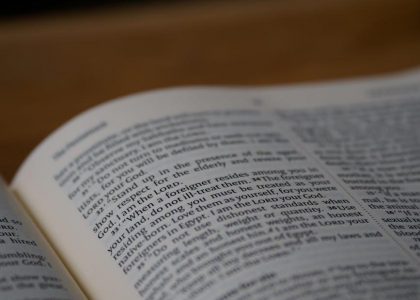Hannah Arendt was a renowned political philosopher whose work, such as The Human Condition, explored themes of freedom, action, and the public realm, deeply influencing modern political thought.
Background and Influence
Hannah Arendt, a Jewish philosopher, fled Nazi Germany in the 1930s, deeply shaping her insights into totalitarianism and human rights. Her work, particularly The Human Condition, reflects her exile experiences and academic rigor, blending philosophy, politics, and history. Arendt’s ideas, such as the “banality of evil,” have profoundly influenced modern political thought, sparking debates on morality and power. Her writings remain relevant today, offering critiques of totalitarian regimes and explorations of freedom’s meaning. Scholars worldwide continue to engage with her concepts, solidifying her legacy as a pivotal thinker in understanding the complexities of human existence and the political realm.
Major Works
Hannah Arendt’s intellectual legacy is marked by seminal works that reshaped political philosophy. Her most influential books include The Origins of Totalitarianism, which analyzed the rise of fascist and communist regimes, and The Human Condition, a comprehensive exploration of labor, work, and action in human existence. Another pivotal work is Eichmann in Jerusalem, where she introduced the concept of the “banality of evil,” challenging traditional notions of morality and culpability. These works, among others, established Arendt as a groundbreaking thinker, offering profound insights into politics, ethics, and human behavior.
The Human Condition by Hannah Arendt examines political life through labor, work, and action, highlighting the public realm and the erosion of freedom in modern societies.
Main Themes
In The Human Condition, Hannah Arendt explores the distinctions between labor, work, and action, arguing that these activities define the human condition. She emphasizes the erosion of the public realm in modern society, where political action is diminished in favor of private interests. Arendt also examines the rise of totalitarianism and its impact on human rights, highlighting the banality of evil as a bureaucratic phenomenon. Her work critiques the dehumanizing effects of technological progress and mass society, urging a return to authentic political engagement. These themes intersect to provide a profound analysis of modern life, emphasizing freedom, plurality, and the necessity of collective action in preserving humanity’s unique capabilities.
Structure and Organization
In The Human Condition, Hannah Arendt systematically explores human activities through five main categories: labor, work, action, thinking, and willing. The book is divided into sections that examine these concepts, tracing their origins in ancient Greek philosophy and their evolution in modern times. Arendt distinguishes between the public and private realms, emphasizing the political sphere as the domain of human freedom. She critiques modern society for prioritizing labor and consumption over meaningful action and political engagement. The structure reflects her central argument: the loss of the political realm in the modern age undermines human freedom and dignity. This organization allows Arendt to build a comprehensive analysis of human existence and its contemporary challenges.
Key Concepts
In The Human Condition, Hannah Arendt introduces several key concepts that define her philosophical framework. The distinction between labor, work, and action is central, highlighting their roles in human existence. Labor refers to biological necessity and survival, while work involves creating a lasting, artificial world. Action, uniquely human, enables individuals to initiate and shape the future. Arendt also emphasizes the public realm, where collective action and freedom flourish, contrasting it with the private realm, dominated by necessity and intimacy. Additionally, she explores natality, the capacity for new beginnings, and the condition humaine, the fundamental conditions shaping human life, such as plurality and earthliness.
Public vs. Private Realm
Hannah Arendt’s distinction between the public and private realms is central to her political philosophy in The Human Condition. The public realm, she argues, is the space for political action, freedom, and collective deliberation, where individuals appear as equals and engage in meaningful discourse. In contrast, the private realm is associated with individual interests, necessity, and biological survival, often disconnected from broader civic life. Arendt emphasizes that the public realm fosters plurality and the common good, while the private realm risks isolating individuals and undermining political communities. Her analysis highlights the importance of maintaining these distinctions to preserve democratic life and human dignity.
Labor vs. Work vs. Action
In The Human Condition, Hannah Arendt distinguishes between labor, work, and action, each representing distinct human activities. Labor is driven by biological necessity, tied to consumption and survival, lacking durability. Work involves creating lasting objects, forming the artificial world of human fabrication. Action, the highest human faculty, is the free initiation of human interaction in the public realm, creating stories and meanings that transcend individual lives.
Arendt emphasizes that modern society often confuses these categories, prioritizing labor over work and action, leading to the erosion of the public realm. This distinction underscores her concern for the devaluation of political action in modernity, highlighting the need to reclaim action as a vital component of human existence and freedom.
Action in The Human Condition
Action, as Arendt defines it, involves initiating and sustaining meaningful endeavors in the public realm, emphasizing its role in forging collective identity and human freedom.
The Public Realm
In The Human Condition, Hannah Arendt emphasizes the public realm as the space where freedom and political action unfold. She draws inspiration from the Greek polis, where citizens engaged in collective deliberation and action. The public realm, for Arendt, is not just a physical space but a shared, common world that emerges through human interaction. It is here that individuals transcend their private interests and achieve a sense of plurality and solidarity. Arendt warns that modern society often erodes this realm, reducing political life to administrative or economic functions. The public realm’s vitality, she argues, is essential for maintaining freedom and preventing the rise of totalitarianism.
Natality and the Capacity for Action
Hannah Arendt emphasizes natality as a fundamental human condition, representing the capacity for new beginnings and the ability to initiate action. This concept is deeply tied to freedom, as each individual’s birth introduces the potential for unprecedented possibilities. Arendt argues that action, facilitated by natality, is a uniquely human faculty that transcends biological necessity and establishes the public realm. She underscores that plurality—the shared human condition of being distinct yet equal—enables collective action and fosters a common world. In The Human Condition, Arendt explores how totalitarian regimes seek to erase this capacity, reducing individuals to mere biological entities devoid of the power to act freely. This destruction of natality undermines humanity’s essential political and moral agency.
Labor and Work
In The Human Condition, Hannah Arendt distinguishes between labor as biological necessity and work as the creation of a lasting, artificial world, reflecting human ingenuity and durability.
Labor: Biological Necessity
Labor, as conceptualized by Hannah Arendt in The Human Condition, refers to the repetitive, life-sustaining activities driven by biological necessity. It is rooted in the survival instincts shared by all living beings, ensuring the continuation of life processes; Labor is cyclical and bound to the body’s needs, such as eating, sleeping, and reproduction, making it inherently private and individualized. Unlike work, which creates lasting artifacts, labor leaves no enduring legacy, as its products (e.g., food, shelter) are consumed or perish. Arendt argues that labor is essential yet lacks the freedom and creativity associated with action or work, confining it to the private realm rather than the public or political sphere.
Work: Creating a Lasting World
In The Human Condition, Hannah Arendt distinguishes work from labor, emphasizing its role in creating a lasting, artificial world. Work involves the fabrication of objects that outlast human life, providing a sense of permanence and durability. Arendt argues that this process of creating enduring artifacts is essential for establishing a shared, public realm. Through work, humans transcend biological necessity and construct a world that reflects their creativity and purpose. This enduring world, shaped by human effort, becomes the foundation for collective identity and memory, ensuring that human existence leaves a lasting legacy beyond the fleeting nature of individual lives.

Totalitarianism
Hannah Arendt examined totalitarianism’s origins and its dehumanizing effects, arguing in The Origins of Totalitarianism that it destroys political and legal systems, eroding human rights and freedom.
Origins and Development
Hannah Arendt’s exploration of totalitarianism in The Origins of Totalitarianism traces its roots to the collapse of nation-states and the rise of ideological movements. She argues that totalitarian regimes emerge when traditional structures disintegrate, creating a void filled by ideologies like Nazism and Stalinism. Arendt contends that these systems rely on propaganda and terror to maintain control, eroding individual freedom and fostering a climate of fear. Her analysis highlights how totalitarianism destroys the capacity for independent thought, replacing it with rigid conformity. This development, she asserts, undermines human rights and the political realm, rendering individuals powerless against systemic oppression. Her work remains a cornerstone for understanding the dangers of authoritarianism.
Impact on Human Rights
Hannah Arendt’s work, particularly The Human Condition, profoundly influenced human rights discourse by highlighting the erosion of the public realm under totalitarian regimes. Her analysis of the banality of evil in the Eichmann trial revealed how bureaucratic systems dehumanize individuals, undermining moral accountability. Arendt emphasized the importance of political freedom and collective action in safeguarding human dignity. Her critique of totalitarianism exposed how such regimes dismantle human rights by isolating individuals and destroying the spaces for political participation. Arendt’s ideas remain central to understanding the intersection of politics, ethics, and human rights, urging societies to protect the public sphere as a safeguard against oppression and the loss of human freedom.

The Eichmann Trial
Hannah Arendt’s coverage of the 1961 trial of Adolf Eichmann led to her concept of the “banality of evil,” highlighting how ordinary individuals could commit atrocities without ideological fanaticism.
Case Study: The Banality of Evil
Hannah Arendt’s concept of the “banality of evil” emerged from her coverage of the 1961 trial of Adolf Eichmann, a Nazi official responsible for organizing the Holocaust. She observed that Eichmann was not a psychopath or ideologically driven monster but an ordinary bureaucrat who followed orders without questioning their morality. This “banality” referred to the disturbing ordinariness of individuals who perpetrate atrocities due to a lack of critical thinking and moral responsibility. Arendt’s analysis challenged traditional notions of evil as grand or demonic, instead highlighting how ordinary individuals could contribute to monstrous acts when they abandon their capacity for ethical judgment.

Freedom and Politics
Hannah Arendt explored freedom as a fundamental human condition, emphasizing its meaning within the political realm and its destruction under totalitarian regimes.
Freedom’s Meaning
For Hannah Arendt, freedom is not merely the absence of oppression but the capacity for meaningful action in the public realm. She distinguishes freedom from liberation, emphasizing its political dimension. Freedom, in her view, is the ability to initiate and participate in collective action, fostering a shared world. It is inherently tied to the public sphere, where individuals can express their unique perspectives and collaborate. Arendt argues that true freedom requires a space where individuals can act together, creating a common reality. This understanding of freedom is central to her critique of totalitarianism, which seeks to erase the public realm and reduce human life to biological necessity.
Relation to the Political Realm
Hannah Arendt’s concept of freedom is deeply intertwined with the political realm, which she views as the space for collective action and discourse. In The Human Condition, she argues that freedom is not an abstract philosophical idea but a tangible, public phenomenon realized through human interaction. Arendt draws on the ancient Greek understanding of the polis, where freedom was exercised in the public sphere. She distinguishes political freedom from liberation, emphasizing that freedom requires a structured public realm to flourish. This realm, she contends, is essential for human dignity and the ability to act meaningfully. Arendt’s ideas remain central to understanding the interplay between freedom and the political realm in modern societies.
Destruction by Totalitarianism
Hannah Arendt’s work critically examines how totalitarianism erodes freedom and the political realm. In The Human Condition, she argues that totalitarian regimes destroy the capacity for action and thought, reducing individuals to isolated, powerless beings. This destruction is not merely physical but also ideological, as totalitarianism eliminates the public sphere where freedom and political engagement thrive. Arendt highlights how such regimes use propaganda and terror to dismantle the human capacity for moral judgment, leading to the “banality of evil.” This destruction is central to her analysis of modern political crises, emphasizing the loss of human rights and the undermining of the human condition.

Ethics and Morality
Hannah Arendt explored moral dilemmas under oppressive regimes, emphasizing the destruction of ethical judgment in totalitarian systems and the role of individual responsibility in resisting evil.
Under Oppressive Regimes
Hannah Arendt’s work examines the ethical and moral dilemmas faced under oppressive regimes, particularly in the context of totalitarianism. She argues that such systems destroy the political realm, reducing individuals to a state of “worldlessness,” where meaningful action and judgment are impossible. Arendt emphasizes how totalitarian regimes manipulate reality, creating environments of fear and propaganda that erode moral responsibility. Her concept of the “banality of evil” highlights how ordinary individuals can perpetuate atrocities when moral frameworks collapse. Arendt’s insights into the mechanisms of oppression remain critical for understanding the ethical challenges of living under authoritarian rule and the importance of preserving human freedom and dignity in such contexts.
Role of Thinking
Hannah Arendt emphasized the critical role of thinking in ethical and political life, arguing that it serves as a safeguard against moral failures and political apathy. In her work, she highlighted how thinking fosters critical engagement with the world, enabling individuals to question assumptions and resist oppressive ideologies. Arendt believed that the absence of thoughtful reflection could lead to the “banality of evil,” as seen in her analysis of Adolf Eichmann’s trial, where ordinary individuals perpetrated extraordinary evil without deep moral consideration. For Arendt, thinking is not merely an intellectual exercise but a political act that cultivates freedom and responsibility, essential for navigating the complexities of human existence and maintaining a just society.
Reception and Legacy
Hannah Arendt’s work, including The Human Condition, has had a profound and controversial impact, shaping political theory while sparking debates about freedom, morality, and totalitarianism.
Critical Reception
Hannah Arendt’s work, particularly The Human Condition, has sparked intense debate and diverse critical responses. While praised for its originality and depth, some critics argue that her ideas are overly abstract and detached from practical realities. Her concept of the “banality of evil” has been both celebrated and contested, with some questioning its applicability to broader ethical frameworks. Additionally, her distinction between labor, work, and action has been critiqued for its perceived rigidity. Despite these criticisms, Arendt’s work remains a foundational text in political philosophy, continuing to inspire and challenge scholars across disciplines, ensuring her enduring relevance in contemporary thought.
Academic Influence
Hannah Arendt’s work, particularly The Human Condition, has profoundly shaped political theory, philosophy, and sociology. Her concepts, such as the “banality of evil” and distinctions between labor, work, and action, are widely studied. Scholars across disciplines draw on her insights to explore totalitarianism, human rights, and the public realm. Arendt’s unique interdisciplinary approach bridges philosophy and political science, influencing contemporary debates on freedom, morality, and power. Her ideas remain central in academic discussions, offering frameworks to analyze modern crises and the erosion of democratic values. Arendt’s legacy continues to inspire new generations of thinkers, ensuring her relevance in understanding the complexities of human existence and political life.
Modern Relevance
Hannah Arendt’s ideas remain strikingly relevant in contemporary discourse, particularly as societies grapple with authoritarianism, technological advancement, and the erosion of democratic norms. Her concept of the public realm resonates in debates about civic engagement and the decline of meaningful political participation. The rise of totalitarian tendencies worldwide revives interest in her analysis of such regimes. Moreover, her exploration of loneliness as a societal phenomenon speaks to modern concerns about alienation and the disintegration of communal life. Arendt’s emphasis on action and freedom continues to inspire movements resisting oppression, while her warning about the banality of evil reminds us of the dangers of bureaucratic indifference to human rights.
Hannah Arendt’s work remains a cornerstone of modern political philosophy, offering profound insights into human action, freedom, and the public realm. Her concept of the “banality of evil” continues to resonate, challenging us to rethink morality under oppressive regimes. The Human Condition underscores the distinction between labor, work, and action, emphasizing the latter as the essence of human freedom. Arendt’s critique of totalitarianism and its erosion of human rights remains eerily relevant today. Her legacy lies in her ability to bridge philosophy and politics, inspiring ongoing debates about democracy, ethics, and the fragility of human dignity in modern society.





